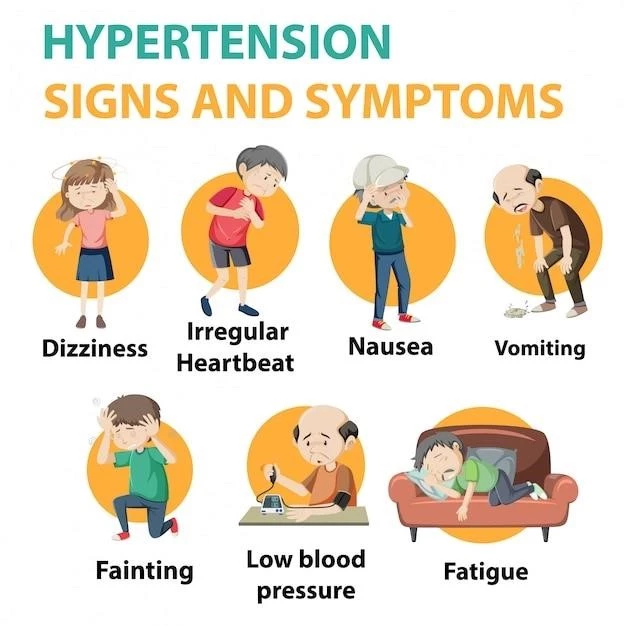Introduction to Wells Syndrome
Wells syndrome is a recurrent inflammatory skin disease caused by a local hypersensitivity reaction to various triggers such as infection‚ bites‚ or medication. Learn more about its symptoms‚ diagnosis‚ and treatment here.
Definition and Overview
Wells syndrome‚ also known as eosinophilic cellulitis‚ is a rare recurrent inflammatory skin disease characterized by painful red‚ raised patches of skin often accompanied by systemic symptoms like fever and arthralgias. The exact cause of this condition is unknown but is believed to involve an abnormal immune response. Diagnosis typically involves histological examination and the presence of peripheral eosinophilia. Treatment usually includes corticosteroids and other medications to manage symptoms.
Causes of Wells Syndrome
Wells syndrome is primarily attributed to a local hypersensitivity reaction triggered by various factors such as infections‚ arthropod bites‚ or certain medications. These triggers can initiate an abnormal immune response leading to the characteristic inflammatory skin manifestations.
Triggers and Risk Factors
Wells syndrome can be triggered by various factors‚ including infections‚ insect bites‚ or certain medications. Individuals with hypersensitivity reactions to these triggers may be at an increased risk of developing this inflammatory skin condition. Understanding and avoiding these triggers can help minimize the risk of Wells syndrome flare-ups.
Symptoms of Wells Syndrome
Wells syndrome typically presents with itchy or burning erythematous nodules or plaques on the skin‚ often accompanied by systemic symptoms like fever and arthralgias. Understanding these symptoms is crucial for prompt diagnosis and management.
Common Clinical Manifestations
Wells syndrome commonly presents with itchy or burning erythematous nodules or plaques on the skin‚ often accompanied by systemic symptoms like fever and arthralgias. These clinical manifestations‚ including red‚ raised patches that can be painful and warm to the touch‚ are indicative of the inflammatory nature of the condition. Recognizing these common symptoms is crucial for identifying and managing Wells syndrome effectively.
To diagnose Wells syndrome‚ healthcare providers typically require a combination of clinical evaluation‚ skin biopsy for histological examination‚ monitoring for peripheral eosinophilia‚ and ruling out other conditions like vasculitis. These diagnostic criteria and methods help differentiate Wells syndrome from other skin disorders and guide appropriate treatment strategies.
Diagnostic Criteria and Methods
Wells syndrome diagnosis often involves a multifaceted approach‚ combining clinical evaluations‚ histological examinations through skin biopsies‚ monitoring for peripheral eosinophilia‚ and the exclusion of other skin conditions like vasculitis. These diagnostic criteria are essential to accurately identify and differentiate Wells syndrome from similar skin disorders‚ guiding healthcare providers in developing effective treatment plans.

Differential Diagnoses
When evaluating skin conditions resembling Wells syndrome‚ healthcare providers should consider differential diagnoses such as bacterial cellulitis‚ Churg-Strauss syndrome‚ and eosinophilic annular erythema. Distinguishing features and histological findings play a crucial role in accurate diagnosis and appropriate management.
Distinguishing Wells Syndrome from Other Skin Conditions
When considering skin conditions like bacterial cellulitis‚ Churg-Strauss syndrome‚ and eosinophilic annular erythema in the differential diagnosis of Wells syndrome‚ healthcare providers focus on histological differences‚ the presence of vasculitis‚ and unique clinical features to accurately differentiate between these conditions. By understanding the distinguishing characteristics‚ healthcare professionals can provide tailored treatment plans and ensure optimal patient care.
The pathophysiology of Wells syndrome involves a local hypersensitivity reaction‚ triggered by various factors like infections‚ insect bites‚ or medications‚ leading to an abnormal immune response and inflammatory skin manifestations. Understanding these underlying mechanisms is essential for effective treatment strategies.
Underlying Mechanisms and Etiology
Wells syndrome involves a hypothesized autoimmune reaction leading to recurrent granulomatous dermatitis with eosinophilia. Its origin‚ though unknown‚ is attributed to this abnormal immune response‚ resulting in inflammatory skin manifestations of erythematous nodules or plaques. Understanding these underlying mechanisms is crucial for effectively managing the condition.
Treatment Options for Wells Syndrome
Effective treatment for Wells syndrome often involves oral corticosteroids and other medications to manage symptoms and prevent flare-ups. It is essential to consult with healthcare providers to discuss personalized treatment plans based on individual needs.
Medical Interventions and Management Strategies
When addressing Wells syndrome‚ healthcare providers often recommend oral corticosteroids and other medications to manage symptoms effectively and prevent recurrent flare-ups. Additionally‚ discussing personalized treatment plans with healthcare professionals is crucial for optimal management and symptom control.
Prognosis and Complications
Understanding the prognosis of Wells syndrome is essential‚ as it typically follows a benign course with occasional constitutional symptoms. By promptly diagnosing and managing the condition‚ individuals with Wells syndrome can achieve positive outcomes and minimal long-term complications. Consult healthcare providers for personalized guidance on managing the condition effectively.
Long-Term Outlook and Potential Risks
The long-term prognosis for individuals with Wells syndrome is generally favorable‚ with most cases exhibiting a benign course and occasional constitutional symptoms. While the condition may recur intermittently‚ timely diagnosis and appropriate management can lead to minimal long-term complications. It is essential for individuals to adhere to healthcare provider recommendations and follow-up care to ensure optimal outcomes and minimize potential risks associated with Wells syndrome.
Case Studies and Research Findings
Explore rare but informative case studies and research findings on Wells syndrome to deepen your understanding of this inflammatory skin condition. Stay informed about the latest advancements in diagnosing and managing Wells syndrome effectively.
Noteworthy Cases and Scientific Discoveries
Exploring rare cases and scientific discoveries related to Wells syndrome can provide valuable insights into the complexity of this inflammatory skin condition. Stay informed about the latest research findings and advancements in understanding and managing Wells syndrome effectively.
Impact on Quality of Life
Understanding the impact of Wells syndrome on individuals’ quality of life is crucial to providing comprehensive care. Managing symptoms effectively and seeking appropriate medical advice can help individuals cope with the physical and emotional challenges associated with this inflammatory skin condition. Stay informed and seek support from healthcare providers to address any concerns related to the disease’s impact on your overall well-being.
Psychological and Social Effects
Wells syndrome can have psychological and social effects on individuals‚ impacting their quality of life. The physical symptoms and recurrent nature of the condition can lead to emotional distress and social challenges. Seeking support from healthcare providers‚ mental health professionals‚ and support groups can help individuals cope with the psychological and social impacts of Wells syndrome effectively.
Support Resources for Wells Syndrome
Access valuable resources‚ including patient support groups and information centers‚ to seek guidance and support for managing Wells syndrome effectively. Stay informed‚ connect with others facing similar challenges‚ and explore available resources for assistance and information.
Information Centers and Patient Support Groups
Accessing information centers and patient support groups can provide valuable assistance for individuals managing Wells syndrome. These resources offer educational materials‚ guidance‚ and emotional support to help navigate the challenges associated with the condition. Connecting with others facing similar experiences can be comforting and empowering. Stay informed and reach out to these support networks for assistance tailored to your needs.
Prevention Strategies
Preventing Wells syndrome involves avoiding triggers like infections‚ insect bites‚ or medications. Regular skin monitoring and seeking prompt medical attention for any skin changes are key preventive strategies. Maintain good overall health to support your immune system and consult healthcare providers for personalized guidance on reducing the risk of developing Wells syndrome.
Tips to Minimize the Risk of Developing Wells Syndrome
To reduce the risk of developing Wells syndrome‚ it is essential to avoid potential triggers like infections‚ insect bites‚ or medications. Regular skin monitoring‚ maintaining good overall health‚ and seeking prompt medical attention for any skin changes are crucial preventive measures. Consult healthcare providers for personalized advice on minimizing the risk factors associated with the development of Wells syndrome.
Current Developments in Wells Syndrome Research
Stay updated on the latest advancements in Wells syndrome research to understand new findings and treatment approaches. Explore ongoing studies and scientific breakthroughs that contribute to enhancing the management of this inflammatory skin condition. Consult healthcare providers for insights on emerging research in the field of Wells syndrome.
Advancements in Understanding and Treating the Condition
Stay informed about the latest advancements in understanding and treating Wells syndrome. Explore ongoing research that aims to enhance diagnosis‚ management‚ and therapeutic approaches for this rare inflammatory skin condition. Consulting with healthcare providers can provide valuable insights into current developments in Wells syndrome research.

Global Awareness and Advocacy Efforts
Get involved in global initiatives to raise awareness and support individuals affected by Wells syndrome. Stay informed‚ engage in advocacy efforts‚ and join campaigns to promote understanding and resources for those living with this rare inflammatory skin condition. Together‚ we can make a difference in advancing knowledge and support for Wells syndrome.
Initiatives to Raise Awareness and Support Individuals with Wells Syndrome
Participate in initiatives dedicated to increasing awareness and providing support to individuals affected by Wells syndrome. Engage in advocacy efforts‚ education campaigns‚ and community support networks to promote understanding and resources for those managing this rare inflammatory skin condition. Your involvement can contribute to enhancing the quality of life and well-being of individuals living with Wells syndrome.
Frequently Asked Questions about Wells Syndrome
Discover more about the symptoms‚ diagnosis‚ and treatment of Wells syndrome to better understand this inflammatory skin condition. Get answers to common queries and misconceptions surrounding Wells syndrome to stay well-informed and actively manage the condition.
Addressing Common Queries and Misconceptions
Get reliable answers to common questions and clarify misconceptions about Wells syndrome. Increase your understanding of the symptoms‚ diagnosis‚ and treatment options for this inflammatory skin condition to make informed decisions about managing your health effectively.
